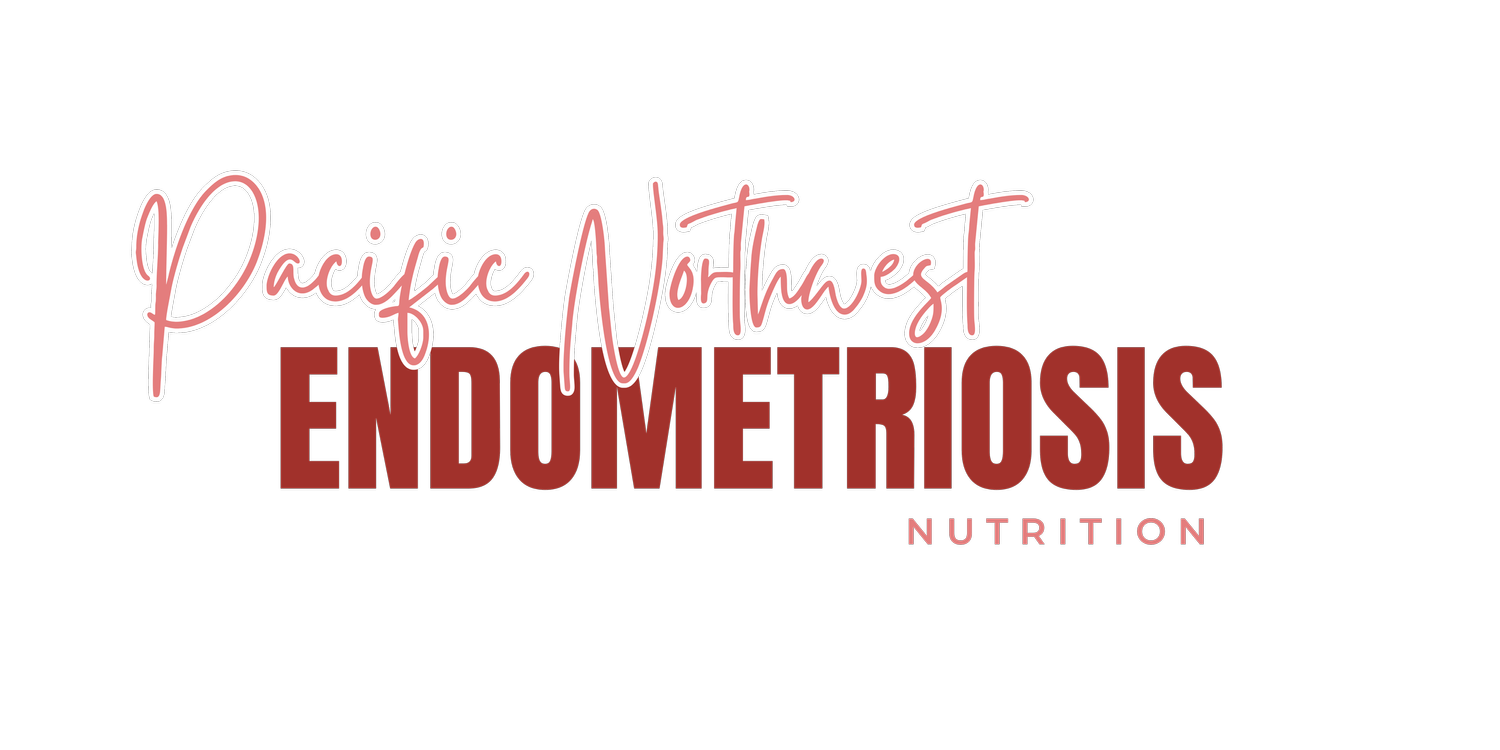Managing Bloating with Endometriosis
It’s 3:30 in the afternoon and your pants are suddenly feeling uncomfortably tight. Around 4 you’re experiencing gas pains and severe discomfort. By the time you’re home, you can’t wait to get in your sweats and look like you might be pregnant. You think back to what you ate. Strangely you ate the same thing a week ago and had none of these symptoms. Sound familiar? Read on to find out about causes for bloating and tips for managing bloating with endometriosis.
What causes bloating?
Gas in your digestive tract leads to bloating. Many foods can cause gas including:
Fruits
Grains
Lactose-Containing Foods
Dairy Substitutes
Legumes
Sweeteners
Vegetables (especially raw)
Some people can track their foods and identify triggers that bother them all of the time. For others, they may tolerate apples for a couple of weeks of the month but at certain times find that they cause severe gas.
If you are having random, unexplained bloating there could be something more going on than a food intolerance.
A condition that affects 7-15% of people born with a uterus and has associated symptoms commonly misdiagnosed as IBS is called endometriosis . Endometriosis is a disease where endometrial-like tissue causes lesions outside of the uterus that cause pain, inflammation, organ dysfunction, and may lead to infertility.
Common signs and symptoms of endometriosis:
Pelvic pain during menses, before menses, after menses and/or anytime during the month
Constipation
Painful intercourse
Infertility
Bloating
Right and/or Left sided pelvic and abdominal pain
Diarrhea
Painful bowel movements
Urinary frequency, and/or urgency, and/or painful voiding
Fatigue
Malaise
Lower back pain
Heavy or irregular periods
What is “Endo Belly”?
Not all unexplained bloating is due to endometriosis, but for those experiencing several of the symptoms listed above, you may be experiencing “Endo Belly.” Endo Belly often presents around ovulation and in the luteal phase of your cycle (the last half), especially right before your period starts. In addition to cyclical triggers for Endo Belly, some other triggers include:
Stress
Caffeine
Alcohol consumption
Constipation
Tight fitting waistbands
Endometriosis causes chronic inflammation and lesions can attach to the bowel or tissues near the bowels. This environment can leave your whole abdomen feeling angry, especially around ovulation and your period. If you suspect you have endometriosis, you should talk with your doctor.
Tips for Managing Bloating with Endometriosis:
Some dietary and lifestyle changes can help in coping with bloating with endometriosis:
Track your cycle and symptoms. If you aren’t sure when you are having the bloating, it is helpful if you track your periods and symptoms throughout the month. Ovulation is around day 14 for many people, but for those with longer or irregular cycles it may be earlier or later. Note any foods that you are eating that make you more gassy at certain times of your cycle.
Avoid wearing tight-fitting waistbands.
Stay hydrated. Most people need at least 64 oz of water (1 liter) per day.
Limit caffeine and alcohol consumption.
Include anti-inflammatory foods in your diet including sources of Omega 3 fatty acids and a variety of vegetables and fruits that you tolerate.
Make sure you are pooping at least once per day.
Limit carbonated beverages such as sparkling water and soda.
Consider adding supplements to support gut health including probiotics, magnesium glycerinate, and prebiotic fiber such as Heather’s Tummy Fiber.
Find ways to manage your stress such as meditation, yoga, a hot bath, taking a walk, journaling, or spending time with a loved one.
Include ginger and mint in your diet. Both are great as tea!
If symptoms are severe, there may be some benefit to following low-FODMAP diet to identify trigger foods.
Get support for Endometriosis Symptoms
If you suspect you are experiencing food intolerances related to endometriosis, it would be beneficial to schedule an appointment with a Registered Dietitian to help identify food and cycle triggers, manage constipation, reduce inflammation, and manage gut health. In addition to managing your symptoms with nutrition, it is also recommended to follow up with a doctor or other health care professional who specializes in endometriosis care.
This blog is intended to educate and inform and is not a replacement for medical advice or nutrition therapy.


